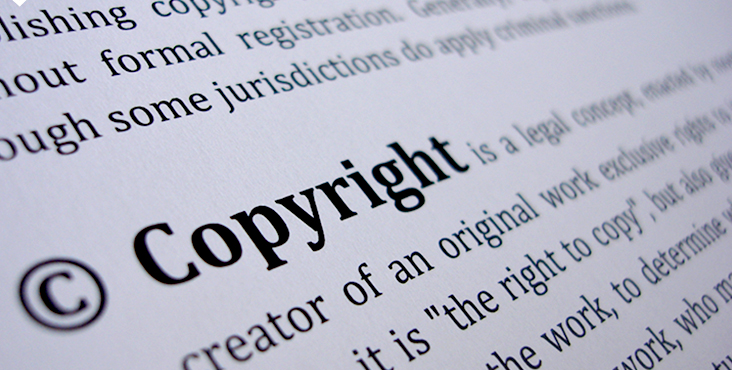Copyright is a form of protection grounded in the U.S. Constitution and granted by law to authors. From the moment that you put your book in a tangible format, it was copyright protected. However, the most reliable way to publicly establish your rights on record is still to formally register your copyright. Registering could save you thousands of dollars in legal costs, and even give you more legal remedies if you need to sue for infringement on your rights.
Registering Makes It Easier to Assert Your Rights
If someone attempts to sue you, trying to make a claim against your unregistered copyrights, it may be harder to assert your rights in court. Sometimes plagiarism is obvious but it is up to individual courts to determine who came up with something first. Since anyone can simply date a document and slap on a © symbol, you never know how a court will rule.
Offers Temporary Injunction Rights
A Certificate of Registration that is issued within five (5) years of the creation date, serves as prima facie evidence (authentic proof) that the work is original, and is owned by the registrant of the copyrighted work. With a registration, a copyright holder can get a temporary injunction against someone who might be infringing on their work.
Permits the Copyright Holder to Send “Cease and Desist” Letters
Most infringement violations are settled out of court. Having a registered copyright allows the copyright holder to send a “cease and desist” letter that can include the real threat of further legal action should the infringer not comply.
Gives you the Right to Sue for Infringement of Copyrights
In the U.S. you cannot even bring an infringement lawsuit against someone unless you have registered your copyright first. In some cases, you can always register a copyright and then file a lawsuit, however, to request expedited handling will cost hundreds of extra dollars.
Prompt Registration Entitles You to be Awarded More Money
Perhaps one of the most compelling reasons for registering a copyright as soon as possible is the level of protection timely registration affords. If you register your copyright within three months of its creation, and you file and win an infringement lawsuit, you can be awarded more money. If you register a copyright later than three months after its creation date, you may forfeit your rights to receive statutory damages, as well as legal costs and attorneys’ fees.
If you have not already done so, we can prepare and submit a copyright submission and deposit for our authors. The book will be copyrighted in your name and the copyright certificate will be mailed directly to you. If you have already registered the copyright for your manuscript, you still must send the mandatory deposit of the best version of the registered work to the Copyright Office.
Frequently Asked Questions
What does copyright protect?
Copyright, a form of intellectual property law, protects original works of authorship including literary, dramatic, musical, and artistic works, such as poetry, novels, movies, songs, computer software, and architecture. Copyright does not protect facts, ideas, systems, or methods of operation, although it may protect the way these things are expressed.
How is a copyright different from a patent or a trademark?
Copyright protects original works of authorship, while a patent protects inventions or discoveries. Ideas and discoveries are not protected by the copyright law, although the way in which they are expressed may be. A trademark protects words, phrases, symbols, or designs identifying the source of the goods or services of one party and distinguishing them from those of others.
When is my work protected?
Your work is under copyright protection the moment it is created and fixed in a tangible form that it is perceptible either directly or with the aid of a machine or device.
I’ve heard about a “poor man’s copyright.” What is it?
The practice of sending a copy of your own work to yourself is sometimes called a “poor man’s copyright.” There is no provision in the copyright law regarding any such type of protection, and it is not a substitute for registration.
Is my copyright good in other countries?
The United States has copyright relations with most countries throughout the world, and as a result of these agreements, we honor each other’s citizens’ copyrights. However, the United States does not have such copyright relationships with every country. For a listing of countries and the nature of their copyright relations with the United States, see Circular 38a, International Copyright Relations of the United States.

